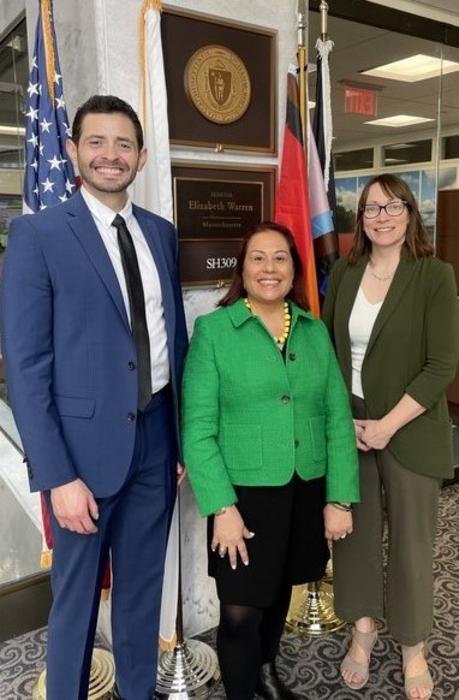The ISSCR is accepting applications through 25 October 2024 for the next class of Lawrence Goldstein Science Policy Fellows. The three-year program offers fellows advocacy and public policy training, the opportunity to participate in ISSCR advocacy events, engagement with leaders in the field, and an ex officio seat on ISSCR’s Public Policy Committee.

Credit: ISSCR
The ISSCR is accepting applications through 25 October 2024 for the next class of Lawrence Goldstein Science Policy Fellows. The three-year program offers fellows advocacy and public policy training, the opportunity to participate in ISSCR advocacy events, engagement with leaders in the field, and an ex officio seat on ISSCR’s Public Policy Committee.
Goldstein Policy Fellows also have the opportunity to:
- Attend ISSCR’s Congressional Advocacy Day in Washington D.C. or a policy- related event in another region of the world.
- Participate in regularly scheduled Public Policy Committee meetings.
- Assist the committee and ISSCR policy staff with projects and programs.
- Contribute to ISSCR’s policy messaging and communications.
Learn more about the current class of Goldstein Policy Fellows and listen to their episode of The Stem Cell Report podcast, where they talk about their paper on the importance of fetal tissue research. The first class of fellows joined the podcast with ISSCR Public Policy Committee Chair Sean Morrison to discuss their paper on the global proliferation of unproven stem cell interventions that are a growing public health problem.
2022-2025 Goldstein Policy Fellows
- Brian Aguado, PhD, University of California, San Diego, USA
- Justin Brumbaugh, PhD, University of Colorado, Boulder, USA
- Tamra Lysaght, PhD, National University of Singapore, Singapore
2019-2021 Goldstein Policy Fellows
- Mohamed Abou El-Enei, MD, PhD, University of Southern California, USA
- Zubin Master, PhD, Wake Forest University School of Medicine, USA
- Kirstin Matthews, PhD, Rice University, USA
Learn more about the requirements and apply.
About Lawrence Goldstein
For the last 25+ years, Dr. Goldstein has been a faculty member and directed a biomedical research laboratory at the University of California San Diego School of Medicine. He also founded and directed the UCSD Stem Cell Program and the Sanford Stem Cell Clinical Center and is founding scientific director of the Sanford Consortium for Regenerative Medicine. Goldstein co-chaired the scientific advisory board for California’s Proposition 71 that established three billion dollars for stem cell medical research in the state. He served on the ISSCR Board of Directors, the Task Force on Unproven Stem Cell Therapies, and Task Force on Guidelines for the Conduct of Human Embryonic Stem Cell Research; he has been a member of the Public Policy and Ethics Committees. Throughout his career, Goldstein has advocated for science before local, state, and national policy makers on issues such as decisions about funding levels, and guidelines and ethical standards for research using stem cells, fetal tissue, and other issues. Goldstein’s lab focuses on understanding the molecular mechanisms involved in movement inside neurons and how these systems are affected in Alzheimer’s and Huntington’s Diseases.
About the International Society for Stem Cell Research
With nearly 5,000 members from more than 80 countries, the International Society for Stem Cell Research is the preeminent global, cross-disciplinary, science-based organization dedicated to stem cell research and its translation to the clinic. The ISSCR mission is to promote excellence in stem cell science and applications to human health. Additional information about stem cell science is available at AboutStemCells.org, an initiative of the Society to inform the public about stem cell research and its potential to improve human health.
###



